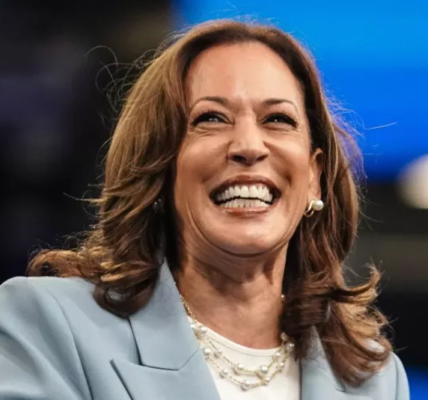
Vice President Kamala Harris is making significant strides in the crucial Sun Belt states of Nevada and Georgia, signaling a potentially transformative shift in the 2024 presidential race. Recent polls indicate that Harris has edged out former President Trump in these states, while the competition remains tight in Arizona and North Carolina.
According to multiple surveys released last week, Harris is polling slightly ahead of Trump in Nevada, Georgia, and Arizona. A Bloomberg News/Morning Consult poll shows Harris with a 2-point average lead over Trump in these states. A Fox News poll released on Wednesday also shows Harris slightly leading in all three Sun Belt states—1 point in Arizona, 2 points in Georgia, and 2 points in Nevada.
Harris’s growing momentum in these battlegrounds is a stark turnaround from the previous dynamics. In 2020, President Biden secured victories in all three states after Trump won Georgia and Arizona in 2016. North Carolina, another key state, is now considered a “toss-up” by the Cook Political Report, adding to the shifting landscape.
A victory for Harris in any of these states would be a significant blow to Trump’s reelection bid, and a clean sweep could severely diminish his chances of securing another term without substantial shifts elsewhere in the Electoral College.
Clayton Cox, former Democratic National Committee (DNC) national finance director, notes, “The biggest thing her candidacy has done is opened up multiple paths in the Electoral College, and that route now runs through states like Nevada, Arizona, Georgia, and North Carolina just as much as the Blue Wall states.”
The recent surge in Harris’s support reflects a dramatic change from earlier this year when Trump had stronger leads. Before Biden’s withdrawal, Trump had a 4-point lead over Biden in Georgia, a 5.8-point lead in Nevada, a 5.7-point lead in Arizona, and a 4.9-point lead in North Carolina, according to DDHQ/The Hill.
Currently, Harris holds a narrow lead in Georgia (0.1 points), Nevada (0.7 points), and Arizona (0.1 points), with the race in North Carolina tied. Nationally, Harris leads Trump by 3.8 points as of the end of August, reversing the 3.3-point lead Trump had over Biden before the president’s withdrawal.
Biden’s decision to step aside came amid mounting pressure from fellow Democrats and troubling internal maps that suggested not only a challenging path against Trump but also difficulties in House and Senate races. Harris’s entry has injected new hope into the Democratic campaign, evident from the increased enthusiasm and support she has garnered.
Adam Abrams, a communications expert who worked on former President Obama’s 2008 campaign, attributes Harris’s success to her inclusive and forward-looking message.
“Kamala Harris has an inclusive, forward-looking message, paired with authentic delivery, and as a result has begun building a coalition that creates multiple paths to 270, whereas Trump’s regressive, divisive message has seemingly narrowed his options,” Abrams said.
Fox News polls showing Harris’s lead over Trump reflect notable gains from Biden’s June figures—6 points in Arizona, 8 points in Georgia, and 7 points in Nevada. Harris has also managed to close the gap in North Carolina, where Trump previously had a 4-point lead over Biden.
Harris’s campaign has been actively targeting key Sun Belt areas with rallies and fundraisers, including recent stops in Savannah, Ga.; Phoenix; and Las Vegas. Additionally, the campaign has significantly increased its investment in television ads in these states compared to Biden’s 2020 run.
Minnesota Governor Tim Walz has joined Harris in fundraising efforts and a bus tour across southern Georgia, culminating in their first joint prime-time interview. Harris has also adjusted her positions on key issues like fracking and border policy to appeal to undecided and moderate voters.
An August campaign memo emphasizes Harris’s strategy of expanding her reach in Sun Belt states, mirroring the coalition-building tactics that propelled Barack Obama to victory. While Obama did not win Arizona or Georgia, he successfully secured Nevada and North Carolina in previous elections.
Cox observes, “The Harris-Walz campaign appears to be building a coalition similar to the one that sent Barack Obama to two terms. This coalition is younger, more diverse, and relies more on college-educated voters, which happens to reflect more of the Sun Belt.”



